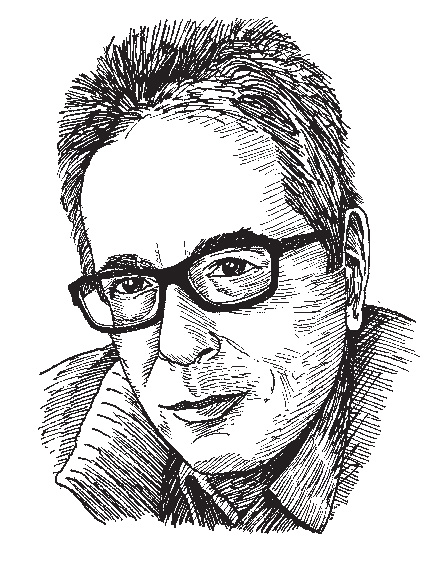César Aira sits with one leg crossed high over the other. He reads as he waits, gray shawl-collar sweater and blue jeans, potbelly popping out of the rolled-arm sofa like a bas-relief. Tonight, the most prolific Latin American writer of the past twenty years—he is credited with at least eighty short novels—will be named one of the ten finalists for the 2015 Man Booker International Prize (which will later be won by László Krasznahorkai). As of right now, however, we are both ignorant of that impending outcome. Aira, black leather Derby shoe kicking into the air, is pushing sixty-seven but carries himself like a teenager, his disinterested shoulders dropping heavily from a thin, translucent neck.
We have met before, but he doesn’t make eye contact. He is notoriously wary of journalists, and rarely opens up to interviews. Two days earlier, at Greenlight Bookstore in Fort Greene, Brooklyn, Aira ignored me for the first time. He was invited there to read an excerpt from The Musical Brain (published by New Directions, in a translation by Chris Andrews). He chose a short story from the collection, based on Cecil Taylor, the godfather prodigy of atonal jazz. I had met Aira in person the night before, in an apartment on the Upper West Side. We had shared a couch.
You have reached your article limit
Sign up for a digital subscription and continue reading all new issues, plus our entire archives, for just $1.50/month.
Already a subscriber? Sign in





